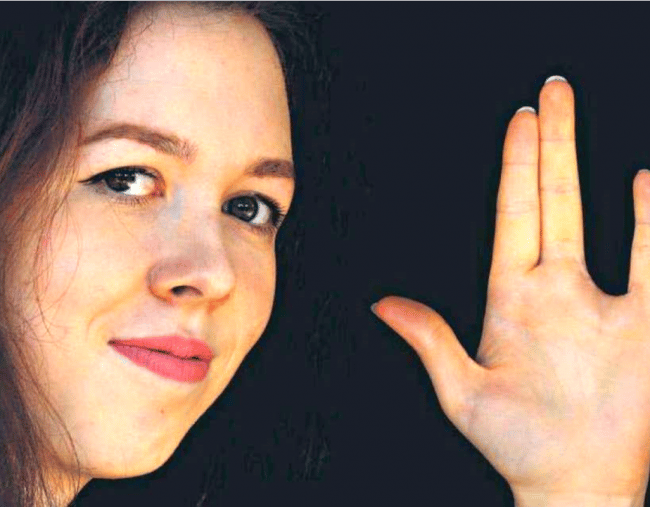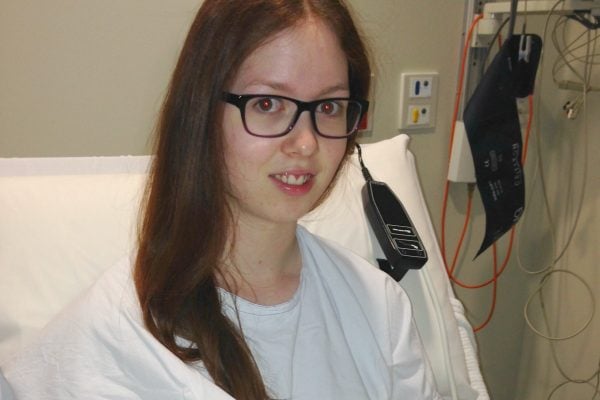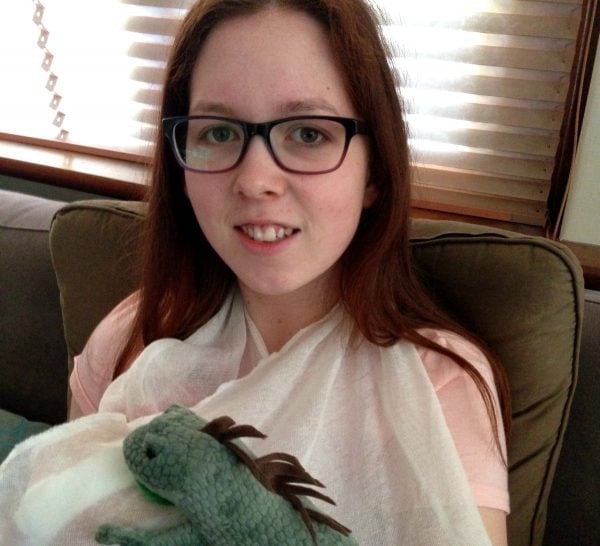
In early 2013, Tilly Gorce had just started Year 12 when she first noticed a lump on her left ring finger. It was only little; a small smudge of raised skin. And it didn’t ache. So she pushed it to the back of her mind while she focused on finishing school.
The Perth student could not have predicted that almost two years later, her finger would need to be amputated after being diagnosed with a rare form of cancer, called epithelioid sarcoma.
The now 22-year-old went to get it checked by her GP in 2014, a few months after graduating. The lump was growing, and by this stage, it was about the size of a pea.
Tilly was sent to undergo several scans over a period of months, and referred to a plastic surgeon to have the lump cut off in late 2014. It was during this procedure that things suddenly escalated.
“[The surgeon] took some of the lump and he didn’t like the look of it,” Tilly told Mamamia.
“He said that it could be something more sinister, that I could actually have to have my whole hand removed. I was really worried, I thought ‘this cant be happening’.”
Soon later, she had her diagnosis: the small lump was an epithelioid sarcoma, a rare and aggressive malignant tumour which was in the nerves of her soft tissue, and it could take her life. The only treatment option was a radical amputation of her finger.


